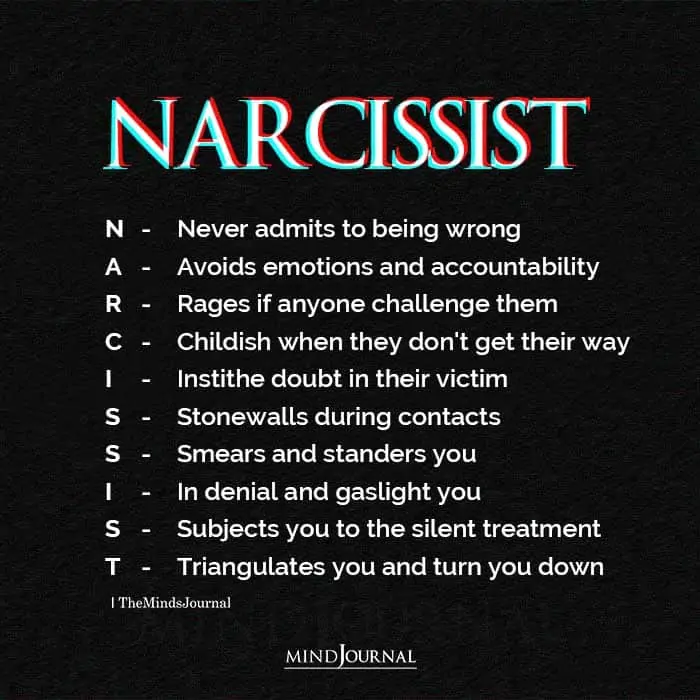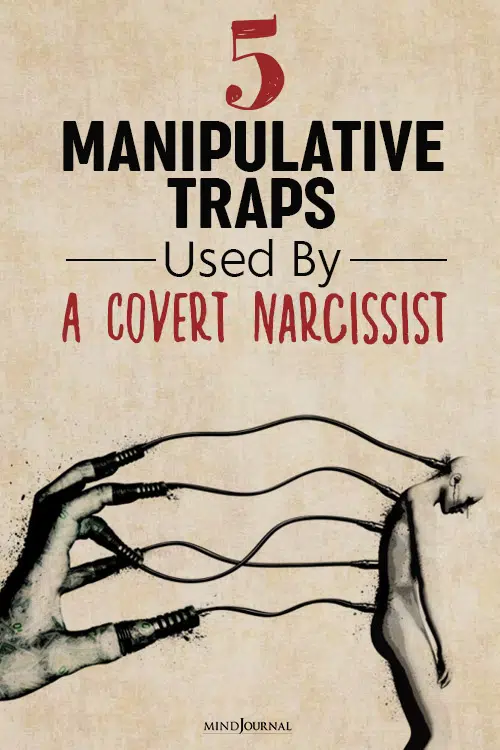Why is it so hard to leave a covert narcissist? Because they use covert emotional manipulation tactics to trap you in a relationship and prevent you from leaving.
The scenario: Insensitive, forgetful, dismissive, selfish, and never wrong, a partner has pushed you to the edge. Standing up for yourself results in nightmare fights without a resolution. The inconsiderate behaviors rarely change, and the disrespect continues as if it was not addressed.
Exhausted from the constant disappointment, hurt, and anger, you decide to end the relationship. You work up the nerve to “pull the trigger.” Yet your partner barely acknowledges the break-up and persuades you to revisit the issue the following morning. The next day, he acts as if there is nothing to talk about. Uttering a few compliments while offering you half of his bagel, he makes a joke, and just like that, you are back.
The same cycle continues. You swear you’ve had enough. Yet each time you attempt to end the relationship, he reels you in with empty promises and insincere sentiments. Ironically, after he has convinced you to re-invest in the relationship, he breaks up with you.
This cycle of reeling a person in to pull the rug out from under them is a sign a partner has control issues. A deeply insecure partner unconsciously combats insecurities by controlling another person’s emotions. Oscillating from nice to mean, caring to cold, interested to dismissive, and then back again, the emotionally impaired partner gains a person’s trust then blindsides him or her.
Related: What is a Covert Narcissist?
This continually throws a person off and keeps him or her spinning. The emotional turmoil is paralyzing, and the need to stop the hurt creates a desire to blame yourself so you can return to the partner and stop the pain.
Yet nothing changes. Each time the person concedes and re-invests in the relationship, the selfish partner increases his or her control. Eventually, the partner takes complete control by abandoning the person. This is the ultimate blow because the person has sacrificed and surrendered aspects of who he or she is to be with the manipulative partner. The rejected person’s damaged self-esteem plummets, and thoughts such as, “If he doesn’t want me, who will?” may be all-consuming.
A helpful way to deal with the situation is to understand the partner’s covert emotional manipulations. Once the intangible dynamics become apparent, it is easier to refrain from absorbing the blame that belongs to the partner. Seeing a covert narcissist realistically allows a person to differentiate between a narcissist’s distorted perceptions and reality.
For example, maybe the narcissist accuses the person of being “dramatic” and “crazy” when she is hurt and angry because the partner humiliated her in front of her boss. The narcissist denies his part in the conflict and continues to point the finger at the person, accusing her of being someone she is not. Uncovering these distortions and manipulations assists a person in escaping the emotional trap a narcissist sets.
A covert narcissist commonly uses five emotional manipulation tactics which include the following.
5 Manipulative Traps A Covert Narcissist Uses
1. Playing The Victim
Playing the victim occurs when a partner attempts to dodge accountability by garnering sympathy and re-directing the focus. If a partner attempts to escape a confrontation by painting himself or herself as the victim in the scenario, he or she is probably playing the victim.
An example includes a partner who is caught tracking and stalking his girlfriend when she is spending time with her girlfriends. When it is discovered, he states, “Every partner I have ever had has cheated on me, so I have trust issues. It is not my fault.”
He excuses his controlling manipulations because he believes he has been wronged in the past. Yet incurring hardship in the past does not give a person a license to mistreat someone in the present. Talking about this vulnerability and working through it instead of using it as an excuse to bully someone else is the healthier option.
Related: The Covert Narcissist: Angel On The Outside, Devil On The Inside
2. Deflecting Accountability
Extreme deflection of accountability is a second common tactic a covert narcissist uses. Denying culpability may be an almost everyday occurrence. Rewriting history in order to exonerate himself or herself, the narcissist often makes a person feel crazy.
For example, say the narcissist consistently refuses to go to the dog park with a person, but when the person mentions it, the narcissist says, “I go with you all of the time!” Although this is completely false, the narcissist vehemently believes the lie. The narcissist changes experiences in his or her own mind to excuse any fault. Arguing does not help the situation as the narcissist refuses to budge.
3. Projecting Blame
Robustly projecting blame is closely linked to deflection but maybe more damaging because projections are unfair attacks that detract from a person’s sense of self. Also, a projection is usually about the partner who is criticizing, not the person who is being criticized.
For example, say a partner consistently completes all of the chores around the house. One day, he decides to forgo some housework in order to go watch a game with friends. Upon his return, he notices the narcissist did a load of laundry. He thanks the partner and the partner utters, “You do whatever you want. You are so selfish. You only think of yourself.” Obviously, it is the narcissist who is selfish, not the partner.

4. Inflicting Guilt
Continually inflicting guilt is another painful weapon a narcissist wields. This happens when a narcissist does something nice for a person then throws it in the person’s face when attempting to control the person, or when trying to take advantage of a person’s empathy.
For example, say a person conveys to the narcissist that separation is necessary. The narcissist may say things like, “How can you do this to me when I helped you start your own business?”
A projection may follow, “Were you just using me?” The narcissist may also say things to imprison the person in the relationship using guilt. “If you leave, I’ll never be the same.” Or “You will devastate the kids. You are ruining everyone’s life. I hope you are happy.” Exploiting a person’s conscience to manipulate and control the person is never acceptable.
Related: 7 Signs You Are Being Manipulated By A Narcissist
5. Acting Passive-Aggressively
Routinely acting out in a passive-aggressive fashion is also a tendency of a covert narcissist. This typically transpires when a person doesn’t comply with a narcissist’s wishes.
For example, say a person interviews for a position the narcissist does not agree with. She lands the position, but her new boss mentions that she needs to “clean up” her LinkedIn page. She checks it out and discovers the narcissist messed with it, subtly creating a sloppy and unprofessional appearance. When she approaches the partner, the partner claims he was trying to help her and accuses her of being “ungrateful.”
These emotional manipulation tactics are often unconsciously motivated by insecurity, so the narcissist may be unaware. Reality is also distorted by the narcissist’s unconscious defense mechanisms, which may make it nearly impossible for the narcissist to see. Yet, these narcissistic dynamics destroy healthy conflict resolution, tear apart a person’s self-esteem, and undermine a person’s strides towards success.
They may have a destructive impact on a person’s life over time. Assessing a partner’s motivation to examine these compulsions is necessary and professional help may be helpful. Yet, if a partner is unmotivated to trust a person and honor the request to address the problems, the safe solution may be to exit the relationship.
References:
https://journals.sagepub.com/doi/10.1177/0886260512468236
Written By Erin Leonard Originally Appeared In Psychology Today











Leave a Reply
You must be logged in to post a comment.